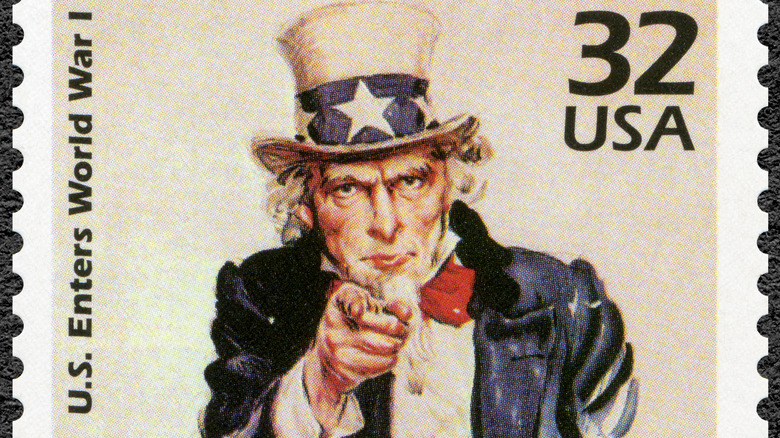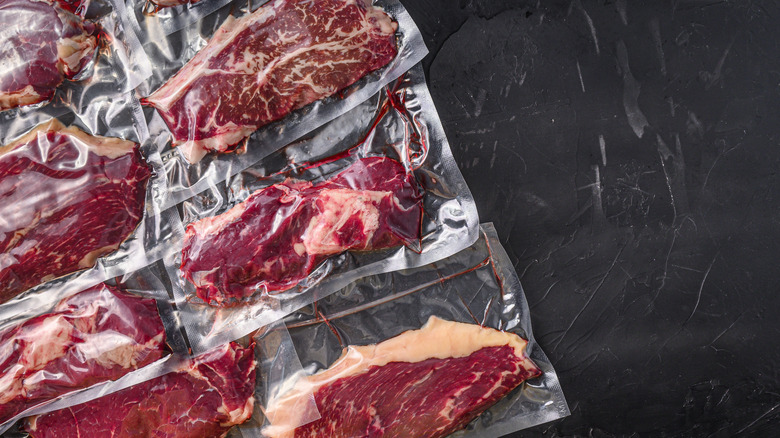How Beef Shipments Led To The Creation Of Uncle Sam
The United States of America is represented by a number of symbols, including the red, white, and blue color palette, the American flag (commonly known as the star-spangled banner), the Liberty Bell, the Statue of Liberty, and the bald eagle. There's also Uncle Sam, a sketched depiction of a white-haired, bearded man wearing a top hat and pointing at the onlooker. The iconic image is often accompanied by the slogan, "I want you for U.S. Army." Since the poster persona's introduction in the early 19th century, Uncle Sam has become a widely identifiable metaphor for military recruitment.
Over time, there have been various versions of Uncle Sam. He first appeared in "Punch," a British humor magazine, according to Britannica, as a thin figure donning a top hat and striped pants. Then, renowned political cartoonist Thomas Nast brought the character to life in the 1870s, per National Geographic. Decades later, during World War I, artist James Montgomery Flagg created arguably the most famous Uncle Sam rendition. The namesake of the famously illustrated patriot has a fascinating history with a booming American market.
The real Uncle Sam was a New York meat packer
Just as a number of brands and their mascots are modeled after real people — Sara Lee, Little Debbie, and Oscar Mayer, to name a few — the American brand allegory that is Uncle Sam also falls into this category. As legend states, Uncle Sam did exist. According to History, "Uncle Sam" was established as the nickname for the United States in September 1813. Here's how the celebrity came to be.
Samuel Wilson was a meat packer from Troy, New York who shipped beef products to the Army during the War of 1812. The merchant would brand the barrels with the acronym U.S. — intended to denote "United States." However, soldiers fighting overseas jokingly claimed that "U.S." actually stood for Uncle Sam, paying homage to the man who played a role in feeding the comrades quality meats during their time of service.
After a local newspaper reported on the story, Uncle Sam became widely recognized as a nickname of the U.S. government, per History. Congress officially recognized Samuel Wilson as "the progenitor of America's national symbol of Uncle Sam" in September 1961, nearly 150 years after his name became well-known among warriors and common folk.

